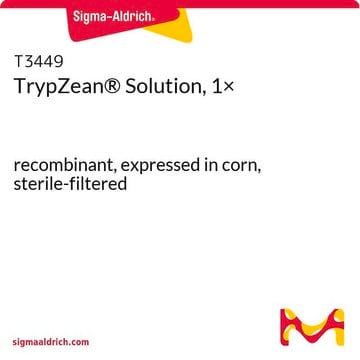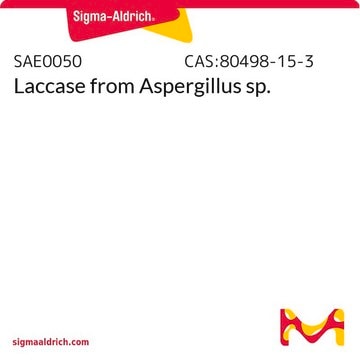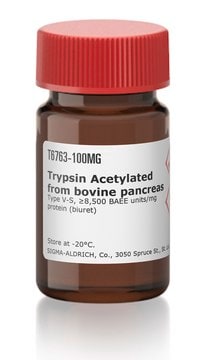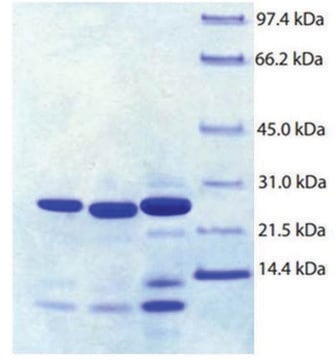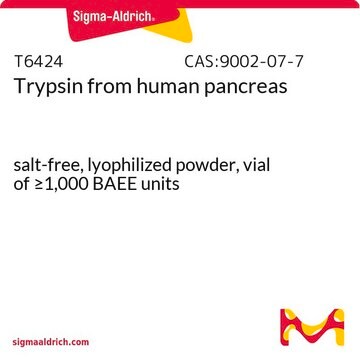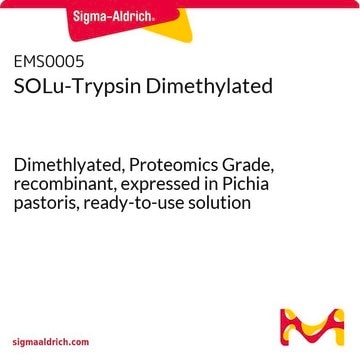T3568
TrypZean® bovine
recombinant, expressed in corn, lyophilized powder, ≥3,350 units/mg solid (USP)
Synonyme(s) :
Trypsin bovine
Sélectionner une taille de conditionnement
354,00 $
Sélectionner une taille de conditionnement
About This Item
354,00 $
Produits recommandés
Produit recombinant
expressed in corn
Niveau de qualité
Forme
lyophilized powder
Activité spécifique
≥3,350 units/mg solid (USP)
Numéro d'accès UniProt
Température de stockage
−20°C
Informations sur le gène
cow ... TRYP8(282603)
Description générale
Application
Actions biochimiques/physiologiques
Notes préparatoires
Autres remarques
Informations légales
Mention d'avertissement
Danger
Mentions de danger
Conseils de prudence
Classification des risques
Eye Irrit. 2 - Resp. Sens. 1 - Skin Irrit. 2 - STOT SE 3
Organes cibles
Respiratory system
Code de la classe de stockage
11 - Combustible Solids
Classe de danger pour l'eau (WGK)
WGK 1
Équipement de protection individuelle
dust mask type N95 (US), Eyeshields, Faceshields, Gloves
Faites votre choix parmi les versions les plus récentes :
Certificats d'analyse (COA)
Vous ne trouvez pas la bonne version ?
Si vous avez besoin d'une version particulière, vous pouvez rechercher un certificat spécifique par le numéro de lot.
Déjà en possession de ce produit ?
Retrouvez la documentation relative aux produits que vous avez récemment achetés dans la Bibliothèque de documents.
Les clients ont également consulté
Active Filters
Notre équipe de scientifiques dispose d'une expérience dans tous les secteurs de la recherche, notamment en sciences de la vie, science des matériaux, synthèse chimique, chromatographie, analyse et dans de nombreux autres domaines..
Contacter notre Service technique